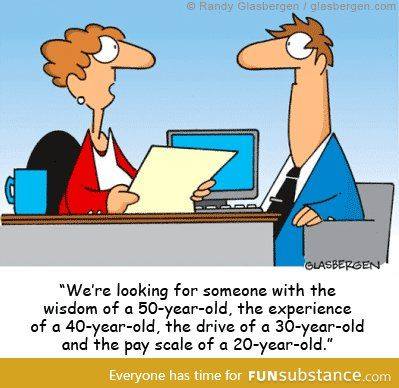Dream Employee
July 7, 2014 at 11:23 am (CV & Resume Writing, interviews, Job Hunting)
Bizarre Interview Encounters
March 28, 2013 at 6:22 am (interviews)
Let this take the sting out of interviews for you! 🙂
Let this show you how our unique personalities can shine through interviews.
Let this test your big-heartedness and open-mindedness as an interviewer.
Imagine your son or daughter, mother or father, friend or colleague, someone you know personally being interviewed by you… Do you really have to be so hard on him or her? This whoever you are interviewing is just one of us.
Why not have some system to test a candidate you want to consider out before formally employing?
I’m thinking of ways to rock the boat. 🙂 Change the system. Free the enslaved! Take the sting out of interview. 🙂
hi i’m an engineer
December 12, 2011 at 4:16 am (Career Advice, interviews, Job Hunting)
Tags: career, engineer, speed dating
Recently come across some career-related postings on Facebook. Would like to share them with you! 🙂
The extrovert advantage
December 16, 2009 at 2:28 pm (interviews)
Tags: advantage, extrovert, interview, introvert
I was amazed how my friend coached me on how to answer interview questions for a job of my choice. It was the first time she saw the job description and very naturally she begin to answer the questions with great flow and ease. I was shocked. I told her honestly, that I would certainly employ her, if I were the interviewer, never mind that she had no intention to apply for this job and had no previous inkling what the job was about. She shared with me that she received many job offers and had, what I would call the luxury of turning down jobs and picking the job of her choice.
From then on, I suspected that there was indeed something called the “extrovert advantage” at the interviews.
“Interviews are unfair to half the world of people that we label as introverts. Extroverts during interviews get a good deal because they ‘talk – think – talk’ whereas introverts ‘think – talk – think’. The implication here is that introverts, if we stereotype them, tend to be slower of speech because they much prefer to provide considered answers. The difficulty is that most interviewers want information quickly so that they can move onto the next candidate. Unfortunately for the slow speakers amongst us the research suggests that people who are really fluent are rated by the ordinary person as being more intelligent, with better interpersonal skills and make better managers. This is obviously nonsense and untrue but we are dealing with perceptions here.”
Perfect Answers to Interview Questions by Max Eggert (2005)
Things you must do before your first interview
October 29, 2009 at 2:48 am (interviews, Job Hunting)
Tags: interview, interview preparation
1. Get a good passport size photograph taken at a studio, keep both soft and hardcopies, preferably before taking the photo go to the hair dresser to have a good cut, wash and dry. This will come in very handy.
2. Photocopy all your certificates from O-Level onwards and get your degree/diploma scroll and transcript certified as true copies at your school. Keep many sets of this!
3. Have a set or a few sets of interview clothings, nice pair of shoes included.
I think this experience of learning I have to do all these actually didn’t come too naturally to me. The gap from student to job-hunter was actually quite a big gap for me. But as my mentor, Michelle, tells me, all gaps no matter how wide they seem, will eventually be narrowed, so just do it!
Just like the gap between Primary school and Secondary school, Secondary school and Junior College (this was a huge one), Junior College and University (even larger) and now being school and the marketplace!
